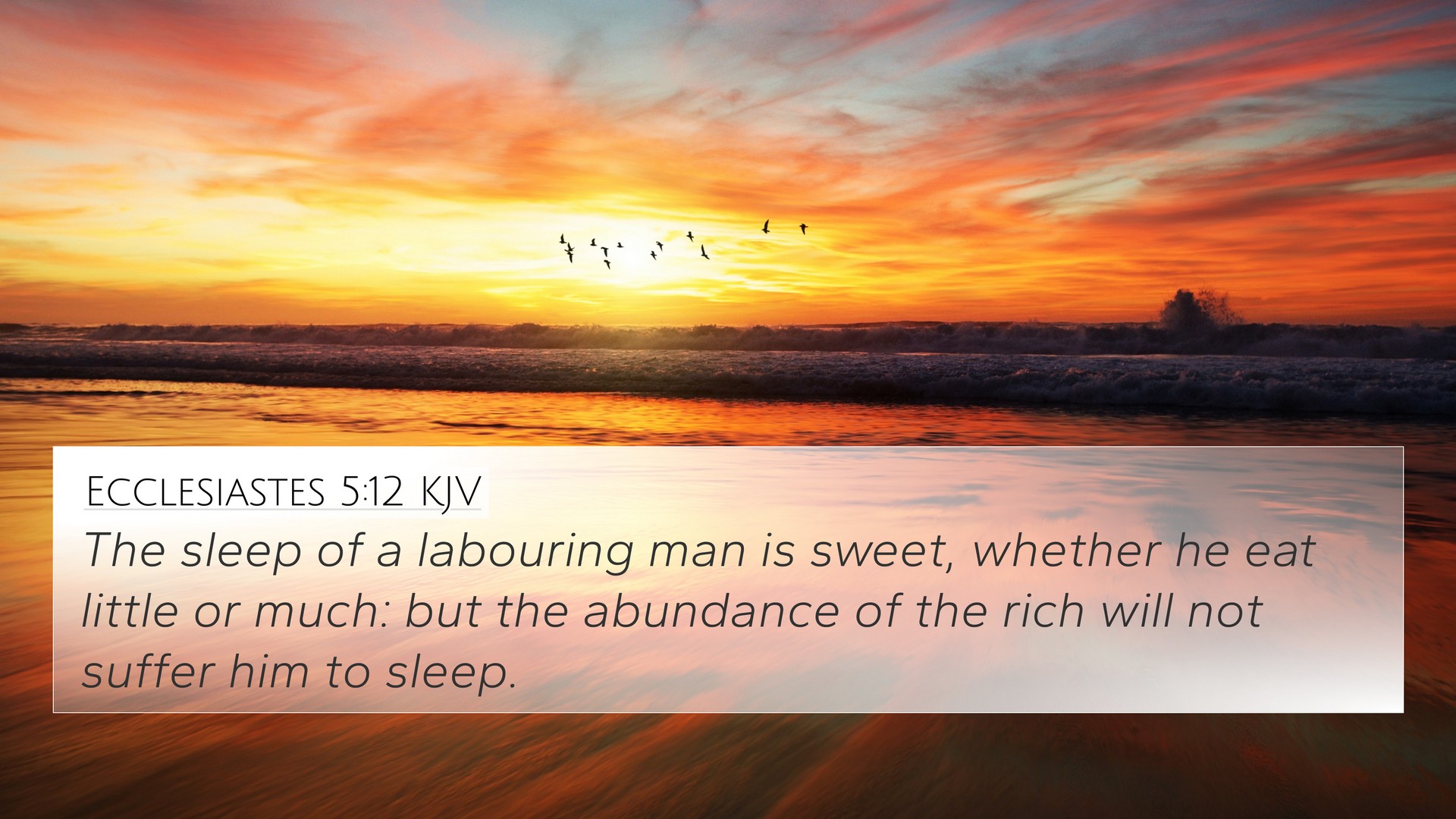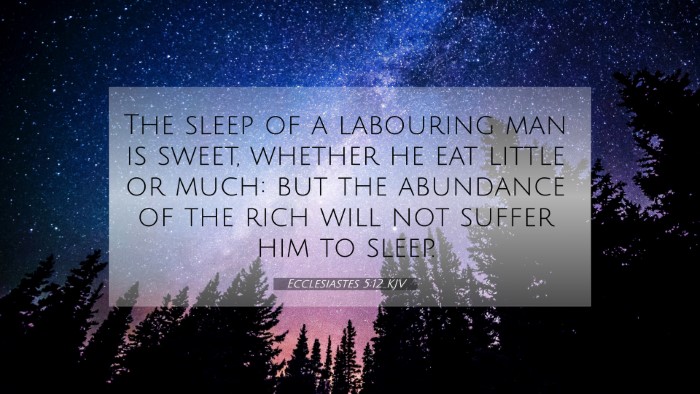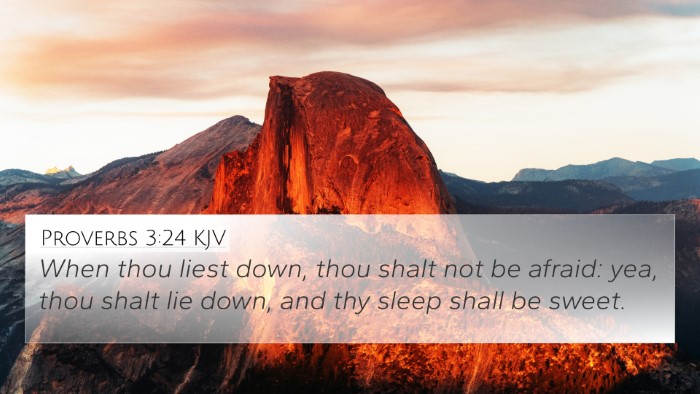Understanding Ecclesiastes 5:12
Ecclesiastes 5:12 states: "The sleep of a laboring man is sweet: whether he eat little or much; but the abundance of the rich will not suffer him to sleep." This verse touches on the themes of labor, rest, and the contrasting experiences of the laborer and the wealthy. In this exposition, we will delve into its meaning through insights provided by public domain commentaries, including those of Matthew Henry, Albert Barnes, and Adam Clarke.
Verse Summary
This verse highlights a profound truth: the simple, restful sleep of a hard worker contrasts sharply with the sleeplessness that often plagues the rich. The underlying message suggests that a clear conscience and honest labor lead to sweet rest, while the burdens of wealth can lead to unease and anxiety.
Commentary Insights
-
Matthew Henry: Henry emphasizes that the hardworking individual finds satisfaction and contentment in their labor, allowing them to rest without worry. In contrast, the rich may face sleepless nights due to the cares and responsibilities that wealth brings.
-
Albert Barnes: Barnes further elaborates that the laborer's sleep represents peace and tranquility, unlike the abundance of the wealthy, which might lead to anxiety and restlessness. He points out that wealth does not guarantee happiness or peace of mind.
-
Adam Clarke: Clarke notes that the mention of sleep relates to the need for rejuvenation after a day of work. He points to the idea that life's fulfillment comes not from abundance but from the virtue of honest toil.
Key Themes
This verse encapsulates several interrelated themes:
- The Importance of Labor: The text presents labor as virtuous, providing satisfaction and peace.
- Wealth and Anxiety: The abundance of the rich brings its own set of troubles, emphasizing that wealth does not equate to happiness.
- Contentment: True contentment comes not from material possessions but from personal integrity and hard work.
- Rest and Restoration: Sleep is depicted as a reward for the diligent, an essential aspect of wellbeing.
Bible Cross References
To further understand Ecclesiastes 5:12, here are several Bible verses that are related and provide additional context:
- Proverbs 10:22: "The blessing of the Lord, it makes rich, and he adds no sorrow with it." This verse underscores the joy that accompanies God's blessings, contrasting it with wealth gained through toil.
- Psalm 127:2: "It is vain for you to rise up early, to sit up late, to eat the bread of sorrows: for so he giveth his beloved sleep." This verse aligns with the idea that unproductive toil leads to unrest.
- Matthew 6:25: "Therefore I say to you, do not worry about your life, what you will eat or what you will drink..." Jesus teaches about the futility of worrying, similar to the burdens experienced by the wealthy.
- 1 Timothy 6:9-10: "But those who desire to be rich fall into temptation and a snare, and into many foolish and harmful lusts..." This warns of the dangers of desiring wealth, enhancing the lesson in Ecclesiastes.
- Proverbs 15:16: "Better is a little with the fear of the Lord than great treasure and trouble therewith." This echoes the theme of valuing peace over material wealth.
- Ecclesiastes 2:22-23: "For what has a man for all his labor, and for the striving of his heart with which he has toiled under the sun?" This reflects a similar sentiment regarding the vanity of labor in the pursuit of riches.
- Philippians 4:11-12: "Not that I speak in respect of want: for I have learned, in whatsoever state I am, therewith to be content." This New Testament verse reinforces the idea of finding peace irrespective of wealth.
Conclusion
Ecclesiastes 5:12 serves as a reminder of the values of labor and the contentment that comes with it. By contrasting the sleep of the laboring man with the unrest of the rich, the author teaches us about the deeper spiritual truths surrounding material wealth and human fulfillment. The insights gained from biblical commentaries alongside cross-referenced verses enrich our understanding and appreciation of this scripture.
SEO Keywords Usage
This exposition on Ecclesiastes 5:12 highlights critical Bible verse connections and invites readers to explore Bible verse parallels within broader scripture studies. Utilizing various tools for Bible cross-referencing can assist in deepening one's understanding of the relationships between these linked Bible scriptures.
Engaging in a comparative Bible verse analysis to find cross-referenced themes in the Bible ensures a wholesome interpretation of not just this verse, but the overarching messages contained within the sacred text.






